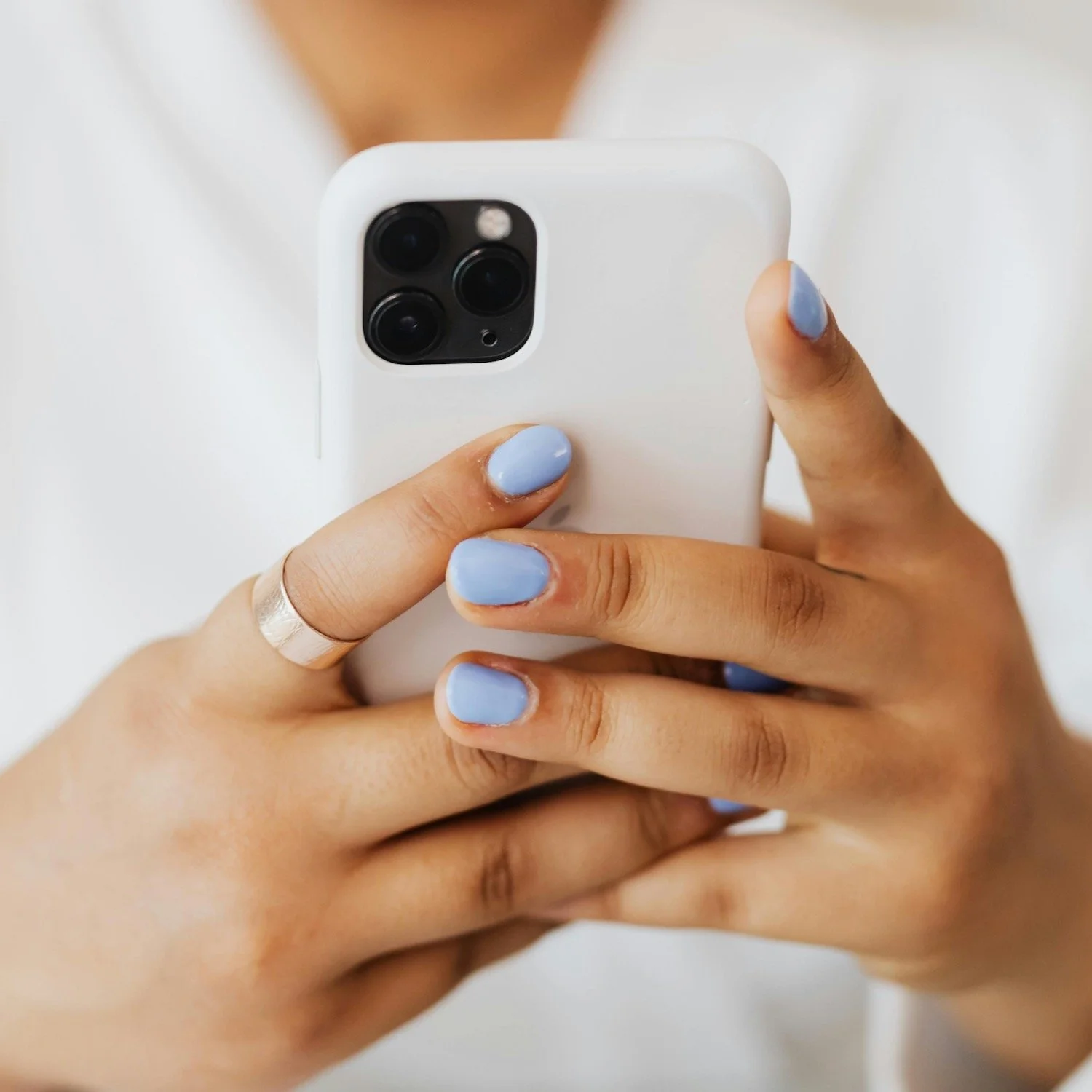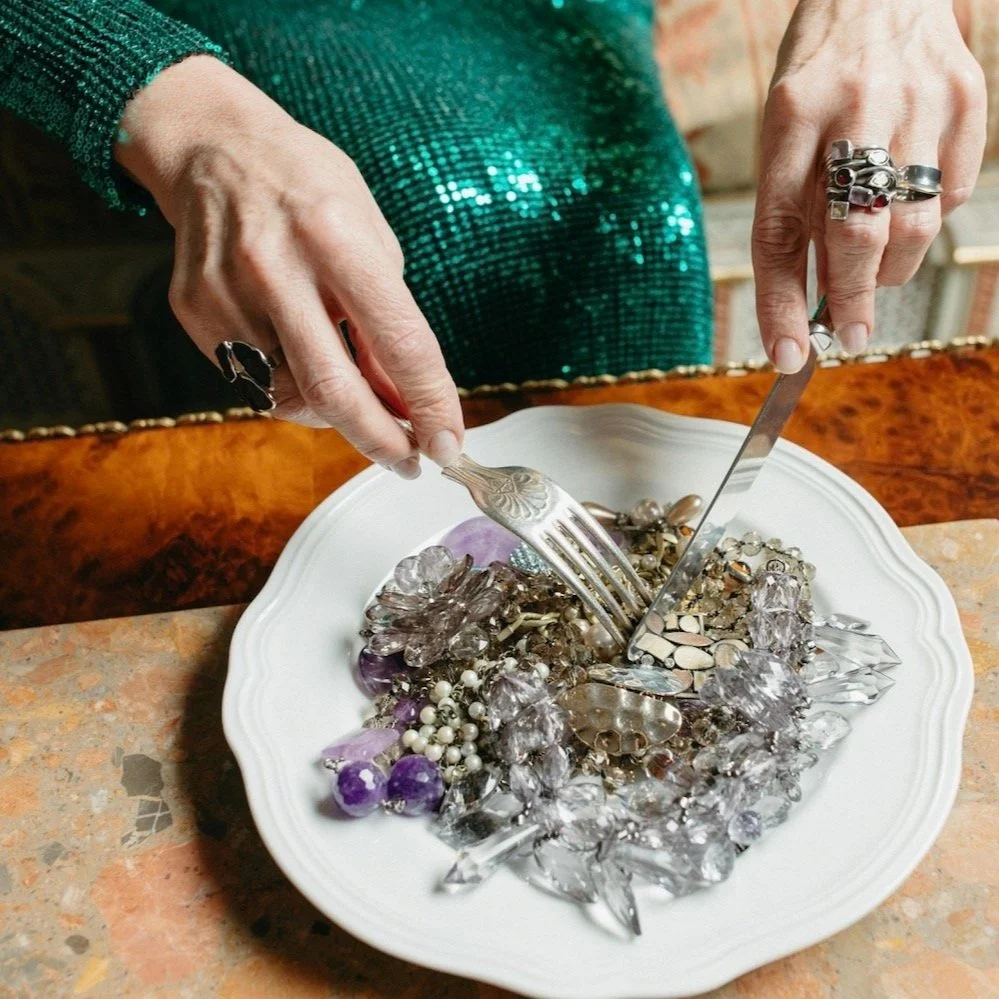Why Are We So Obsessed With Astrology?
by Marissa Pomerance
It only takes a cursory scroll through our overly saturated, explosively full inboxes to come to this realization; women are obsessed with astrology. Countless marketing emails from woo-woo beauty brands to supposedly straight-laced news sites are enticing clicks by promising to unravel the mysteries of the universe (or promising to unravel the mysteries of shopping) through this week’s horoscope.
Here’s an actual subject line from an e-mail that popped into my inbox the other day: “Check your horoscope to find your perfect legging!” Apparently astrology has infinite applications.
It is also experiencing a cultural renaissance.
Let’s be honest—we all LOVE astrology.
Membership to the Association for Young Astrologers has doubled in the last year. Web traffic to posts on horoscopes have skyrocketed. In the US, a whopping 37% of women believe in astrology (that’s more than 1 in 3!) in comparison to 20% of men, according to a study done by the Pew Research Center.
At The Candidly, we’re unashamed to admit that our Instagram post relating astrological signs to Thanksgiving dishes was one of our highest performing, inciting a fervor amongst commenters who absolutely did NOT see themselves as a roasted squash or a green bean casserole.
Many of us grapple with the understanding, deep down, that astrology isn’t…how do I put this gently...real. (I know I know, that’s such a Capricorn thing to write). Scientific studies have continually disproven astrologers’ abilities to predict futures or describe personality traits based solely on the alignment of stars and planets.
And even when we convince ourselves to cast aside these scientific studies, we still have common sense, which recognizes that the often-vague predictions of astrology read like fortune cookies, making them easily applicable to almost anyone.
But here’s the question looming over every horoscope email and “what’s your sign?” conversation and diamond-studded, gold-coin Scorpio necklace:
Even though we know it’s not the most evidence-backed science, we love astrology.
Why? And why is it mostly women that believe in it?
We use astrology to make sense of our uncertainty.
Turns out, the answer isn’t simply marketing, but has to do with pattern seeking and women’s tendency to believe in the supernatural.
Pattern-seeking, or “patternicity,” is when humans seek out meaning and patterns in both meaningful and meaningless occurrences. Michael Shermer, scientist and professional skeptic, believes human brains are hard-wired for pattern-seeking, and in our evolution, we’ve survived from learning valuable lessons through finding patterns in our environment, a process called “association learning.” Essentially, this theory suggests that early humans would start to recognize, over time, that certain patterns of phenomena (like an animal sound or a rustling of leaves) might mean something important (like danger), and would adjust their behavior accordingly (like getting to safety).
Since it was much more beneficial for early humans to believe the aforementioned rustle in grass was always a dangerous predator (and seek safety) than to dismiss it as something random, like the wind (and put themselves in danger), humans began to believe that most patterns were real, meaningful, and important for survival. The problem is that, according to Shermer, humans “did not evolve a Baloney Detection Network in the brain to distinguish between true and false patterns.” While some of these patterns are very important, others—like seeing faces of various religious figures in food—mean nothing.
Thus, superstition and false beliefs were born, as humans began lumping sets of events together as a “pattern,” even if they were random.
As these seemingly-meaningful patterns become superstitions and beliefs, we seek to confirm them by finding evidence (and more patterns) that support these beliefs. This process is called “agenticity,” and Shermer describes it as “the tendency to infuse patterns with meaning, intention, and agency.” Agenticity explains humans’ desire to see the world as being controlled by invisible, intentional agents, leading us to turn to religion, fate, and spirituality (and even conspiracy theories) to understand events and the world around us.
“astrology literally looks to patterns in the planets and stars as explanations for patterns within ourselves and our lives. ”
And what is Astrology if not a form of pattern-seeking? Astrology literally looks to patterns in the planets and stars as explanations for patterns within ourselves and our lives. We use it as shorthand to explain our personalities (“I can’t help it, I’m such a Virgo”), or as The Reason everything seems to be going wrong (“mercury is in retrograde, again!”).
The clear link between astrology and our obsession with patterns is most elegantly illustrated by an astrology app that’s literally called “The Pattern,” which is a “social network that helps you better understand yourself and connect with others on a deeper level.” The app claims to help users “explore your Personal Pattern to gain insight about various sides of your personality” by focusing on cycles that offer “an overview of what you're going through at this moment in time.”
Did an app claiming to understand my patterns through my birth date make me laugh and joke text it to rest of The Candidly team slash all my friends slash everyone I know? Yes. Did I also immediately download it and brag about how it’s beloved by Channing Tatum and then voraciously read every single one of my “patterns,” nodding along in amazed bewilderment at their accuracy? Also yes.
Because astrology’s promise to give me insight into how patterns in our world influence my decisions, personality, and behavior is just too tempting to resist.
Astrology is a quick and easy form of self-discovery.
Pattern-seeking helps us to understand our world, and astrology gives us a quick, easy way for us ascribe to a clear, defined type. It gives us a method to put ourselves in boxes or categories that can be used as a clear-cut explanation for the biggest questions in the universe—the ones that we’ll likely never get an answer to. Often, we turn to astrology to make sense of those of our own patterns that we don’t yet understand.
But when it comes to methods of self-discovery, astrology has one of the lowest barriers to entry. By focusing on discrete zodiac signs, we can demonstrate an understanding of self that comes from spending a mere 5 minutes reading our horoscope. Astrology doesn’t require us to ask big questions of ourselves. It doesn’t demand we take an in-depth look at our past and our relationships to make sense of our actions, behavior, and personality; we only need to look to stars and planets and their movements.
Astrology provides a sort of rebranded “self-help”—an outdated genre that has been traditionally marketed towards women. Women make up 70% of consumers of the self-help industry; women are twice as likely to suffer from depression than men, and there have been clear links between people with depressive symptoms and readers of self-help books. And since most self-help books aren’t grounded in psychological research (or, you know, professional advice), it’s not a huge surprise that they don’t work or cure women’s depression.
Similar to self-help books, astrology is a form of comfort. Reading a horoscope that explains a certain shitty period in my life will only last until the end of the month is comforting. But it’s even more compelling because it gives us definitive answers and certainty in a confusing, uncertain world. Instead of spending thousands of dollars and countless hours on therapists, astrology allows us to indulge in a soothing, painless, cheap, and quick form of self-understanding with its surface-level categorizations.
We’re encouraged to blame external forces beyond our control—like mercury, or the day we were born—instead of taking the necessary time to examine our real, deeper sources of pain.
“we’re encouraged to blame mercury-in-retrograde, or the day we were born, instead of examining deeper sources of pain.”
The astrological gender divide comes down to this: control.
This tendency to turn towards the external is likely why women, in particular, are so attracted to astrology. Most psychologists explain this phenomenon through a concept called “locus of control,” which suggests that our belief system, and our belief in our own ability to control our lives, are influenced by the causes of our experiences. Those with an “internal” locus of control believe that their actions are responsible for events in their lives. However, those with an “external” locus of control tend to attribute their experiences to causes that they have no control over, like fate or someone else’s actions.
Studies on the link between gender and one’s locus of control have demonstrated that “people in positions of lesser societal power (like women) appear to have external attributional styles (loci of control).” For example, when “women are successful, they are more likely than men to attribute their success to external factors” than men. Essentially, women tend to look more to external factors as explanations than men. But why?
Of course, every individual is different, with different experiences that have shaped their own personal locus of control. Nevertheless, on a larger scale, studies have “shown that people in positions of empowerment tend to have more internal locus of control than do those in positions of dependency. This may be due to learned response in relation to cues received from society, in which case gender would be more closely related to locus of control.”
As women in the U.S. have historically lived in a male-dominated society, external factors have influenced the actions and behavior of women far more than men; for hundreds of years, societal cues have controlled almost every aspect of women’s lives. It’s impossible not to recognize that when it comes to even the basics--from owning property to voting to working to dressing to women’s health-- historically, women have had to fight for control over their own decisions.
Clearly, on a large systemic scale, women have traditionally been subject to more external forces of control than men.
It’s hardly a surprise, then, that women are also more likely to be religious. Of course, plenty of women are secular and plenty of men are religious, but according to the Pew Research Center, “86% of American women claim to be religious…but only 79% of American men claim as much; 77% of women believe in God with absolute certainly, but only 65% of men do…63% of women say that religion is very important in their lives, but only 49% of men say as much.” In fact, women score higher on almost every single religiosity metric.
And while these percentage differences might not seem huge, they clearly represent a pattern that women are more inclined to look for explanations in the external forces of religion. Similarly, women are also more likely than men to believe in the supernatural and paranormal, like witches and ghosts, or – you guessed it!—astrology (minus one small exception for aliens-- apparently men love aliens).
The belief that external causes (like the movement of planets or supernatural forces or God) influence our personal outcomes then understandably aligns with a worldview shaped by the control of the external influences of a male-dominated society. And since astrology provides a cosmic reason for our experiences, it can give us solace, particularly when our lives feel out of control.
It’s a way for women to make sense of a world that hasn’t served their needs—one that occasionally makes them feel robbed of agency. Because if we’re not able to make our own choices, then at least there’s comfort in knowing that this lack of agency is due simply to the planets and the stars, and not the failures of other people.
On the bright side, I just read that I’ll have Jupiter in my sign, which will put me “in an optimistic frame of mind throughout the year.” I’m already feeling happier, tbh.
Marissa Pomerance is the Managing Editor of The Candidly. She’s a Los Angeles native and lover of all things food, style, beauty, and wellness. You can find more of her articles here.















